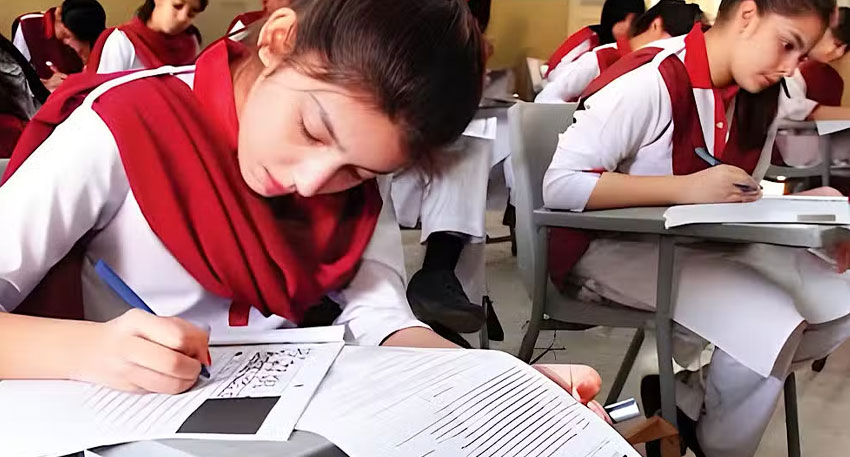
Punjab Education Department Confirms Matric & Inter Exam Schedule for 2026
The Punjab Education Department has officially announced the annual examination schedule for matric and intermediate classes for the academic year 2026, bringing clarity and direction for millions of students, parents, and educational institutions across the province. According to the confirmed schedule, matric board exams will begin on March 3, 2026, while intermediate exams are set to start on May 5, 2026. This early confirmation allows both public and private schools to structure their academic calendars effectively and ensure timely preparation for students.
Alongside the exam dates, the department has approved important changes in the admission policy, school calendar, and syllabus structure. These updates are designed to improve educational quality, reduce academic gaps, and bring uniformity across Punjab’s schooling system. In addition, the government has confirmed that new textbooks, including 29 updated and replaced titles from class six to matric, will be printed in December 2025 and distributed in early April 2026.
New Academic Year to Begin on April 1, 2026
The Punjab Education Department has announced that the 2026 academic year will officially begin on April 1. This aligns with the province’s long-term plan to maintain a consistent academic cycle. To support students from the start of the session, free textbooks will be distributed from April 5, making it easier for families to manage academic expenses.
The printing of updated textbooks—including major replacements for classes 6 to 10—marks an important step in curriculum reform. These textbook updates aim to make learning more modern, relevant, and engaging. By ensuring the availability of new books before the academic year begins, the government is trying to eliminate the delays students faced in previous years.
Syllabus Amendments & Revised Admission Policies for 2026
The confirmation of exam dates came after the approval of the revised admission policy and the updated school calendar. These policy changes include adjusted timelines for admissions, enrollment, and academic activities to create a more balanced academic environment. The revised syllabus for 2026 also focuses on improving concept clarity, reducing outdated content, and introducing practical, skill-based learning elements.
These improvements aim to keep Punjab’s curriculum aligned with global standards while addressing local educational challenges. Schools have been instructed to follow the new guidelines strictly to ensure consistent implementation across the province.
Rising Dropout Rates: A Growing Crisis
Despite these reforms, Punjab’s education sector continues to face serious challenges. The most alarming issue is the surging dropout rate and the increasing number of out-of-school children. The province recorded 28 million out-of-school children in 2025, and projections show that this number may exceed 30 million in 2026 if timely actions are not taken.
Multiple factors contribute to this crisis:
1. Economic Pressures
Many families struggle with financial instability, forcing children to drop out and support household income.
2. Lack of Accessibility
Remote and underdeveloped areas still lack educational infrastructure, making consistent schooling difficult.
3. Learning Gaps
COVID-era disruptions, poor learning environments, and limited teacher training have significantly widened academic gaps.
4. Social Barriers
Early marriages, cultural restrictions, and lack of awareness continue to affect enrollment—especially for girls.
The government’s new policies are expected to address some of these issues, but experts believe that deeper structural reforms are needed to reverse the trend.
Importance of Early Announcement for Students & Schools
The early confirmation of examination dates provides several advantages:
-
Better academic planning for schools, teachers, and students
-
Adequate time for exam preparation and revision
-
Timely completion of syllabi across public and private institutions
-
Reduced uncertainty and improved academic continuity
-
Streamlined planning for practical exams, internal assessments, and administrative tasks
Schools can now align teaching schedules with official timelines, ensuring that students receive systematic preparation leading up to their board exams.
Positive Steps Toward a More Organized Education System
The Punjab government’s proactive measures—including new textbooks, revised policies, and standardized assessments—signal a stronger commitment to improving academic quality. Introducing board exams for Class 8 enhances exam readiness, while updated syllabi help students compete in a modern educational environment.
However, the province still faces the challenge of tackling dropout numbers and ensuring equal educational opportunities for all. Continued government action, community support, and private-sector collaboration will be essential in addressing this crisis.
With matric exams set to begin on March 3, 2026, and intermediate exams on May 5, Punjab’s education sector enters a more structured academic phase. The revised policies, updated curriculum, and new textbooks reflect the government’s efforts to modernize education. Nonetheless, the rising number of out-of-school children remains a major concern that needs urgent attention.
These developments represent a crucial step toward improving the overall quality of education in Punjab, ensuring better planning, enhanced learning outcomes, and more accountability within the system.



.jpg)











